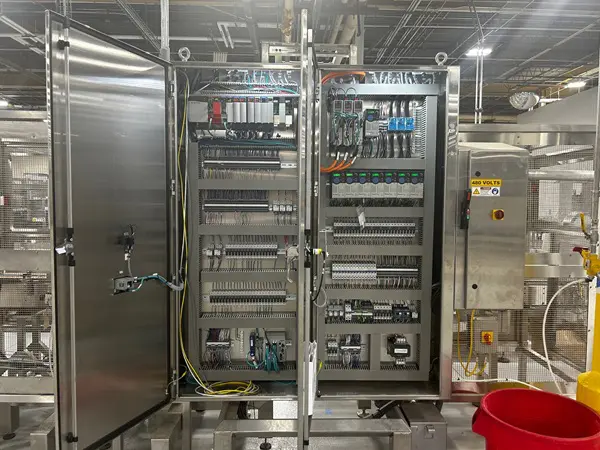Electronic control engineering plays a crucial role in shaping the future of modern technology. It is the field dedicated to designing, analyzing, and optimizing control systems that regulate the behavior of machines, devices, and processes. Every time you adjust your home thermostat, drive a car controlled by advanced systems, or even use a washing machine with precise cycles, you are benefiting from the work of electronic control engineers. This field is fundamental to our interconnected, technology-driven world and is pivotal in making systems smarter, safer, and more efficient.
What is Electronic Control Engineering?
At its core, electronic control engineering focuses on the automation and regulation of systems to meet specific performance requirements. The field includes designing control algorithms that manage everything from simple devices like fans or toasters to highly complex systems found in aircraft, power grids, robots, and manufacturing plants. Engineers in this domain use multidisciplinary expertise, combining knowledge of electronics, computer science, and mechanical engineering, to create systems that work seamlessly and reliably.
Control systems can either be open-loop, where actions are predefined and do not adjust to feedback, or closed-loop, where the system continuously monitors its output and adjusts its operations to achieve the desired outcome. Closed-loop systems, also known as feedback systems, are ubiquitous today. For example, cruise control in cars ensures your speed remains constant regardless of road conditions by continually adjusting throttle input.
Applications of Electronic Control Engineering
The applications of electronic control engineering are vast and impact almost every aspect of modern life. Here are some of its most significant applications:
1. Automotive Industry
Modern vehicles heavily rely on control systems for fuel efficiency, safety, and enhanced driving experiences. Anti-lock braking systems (ABS), electronic stability programs (ESP), and advanced driver-assistance systems (ADAS) like lane-keeping assistance or automated parking are all achievements of electronic control engineering. With the rise of electric vehicles (EVs) and self-driving cars, this field continues to evolve at an unprecedented pace.
2. Aerospace and Defense
Aircraft rely extensively on advanced control systems, from autopilots that maintain altitude and direction to precise control of engines and flight surfaces. Similarly, defense systems, including guided missiles and drones, use highly sophisticated feedback control technologies for accuracy and reliability.
3. Robotics
Robotics is another domain that thrives on electronic control engineering. From industrial robots assembling products with precision to service robots assisting in hospitals or households, control systems enable these machines to perform complex, coordinated tasks. The integration of artificial intelligence further enhances robots’ ability to adapt to dynamic environments.
4. Energy Management
The energy sector is leveraging control systems to optimize performance and reduce waste. Smart grids, which balance electricity supply and demand in real-time, make heavy use of electronic control principles. Similarly, renewable energy systems, such as wind turbines and solar power units, depend on control algorithms to maximize efficiency under changing environmental conditions.
5. Healthcare Technology
Medical devices like MRI machines, infusion pumps, and even simple blood pressure monitors rely on control systems to deliver precise and reliable performance. Additionally, automated surgeries using robotic arms and wearable health gadgets are expanding the scope of health applications powered by control engineering.
6. Manufacturing and Automation
Factories worldwide are adopting control engineering to improve productivity and streamline operations. Automated assembly lines, quality control systems, and industrial Internet of Things (IoT) sensors are all made possible through this technology. These advancements allow industries to monitor, adjust, and optimize performance with minimal human intervention.
Advancements in Electronic Control Engineering
The field is continually evolving, thanks to breakthroughs in technology and computing. Some of the most notable advancements include:
1. Artificial Intelligence and Machine Learning
AI and machine learning have brought a revolutionary shift to control engineering. Adaptive control systems can now learn from their environment, predict trends, and self-correct for better performance. For example, predictive maintenance in industrial equipment uses AI to foresee potential failures before they occur.
2. Internet of Things (IoT)
IoT has enabled control systems to become more interconnected and efficient. Smart homes, where lights, appliances, and HVAC systems autonomously adjust based on user preferences, are a direct result of IoT-powered control systems.
3. Miniaturization and Embedded Systems
The advent of smaller and more powerful microcontrollers and processors has made it possible to embed complex control functionalities into compact devices. This development paves the way for innovation in wearables, medical implants, and portable electronic devices.












































